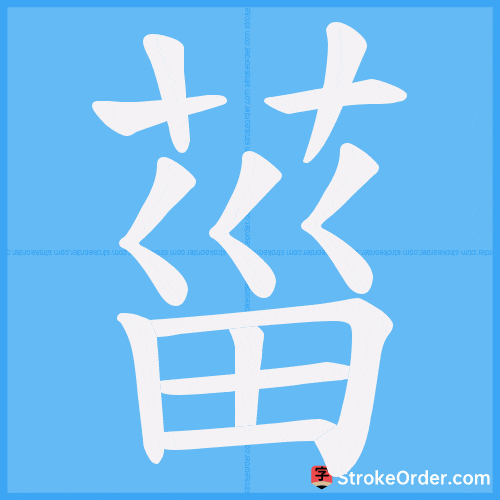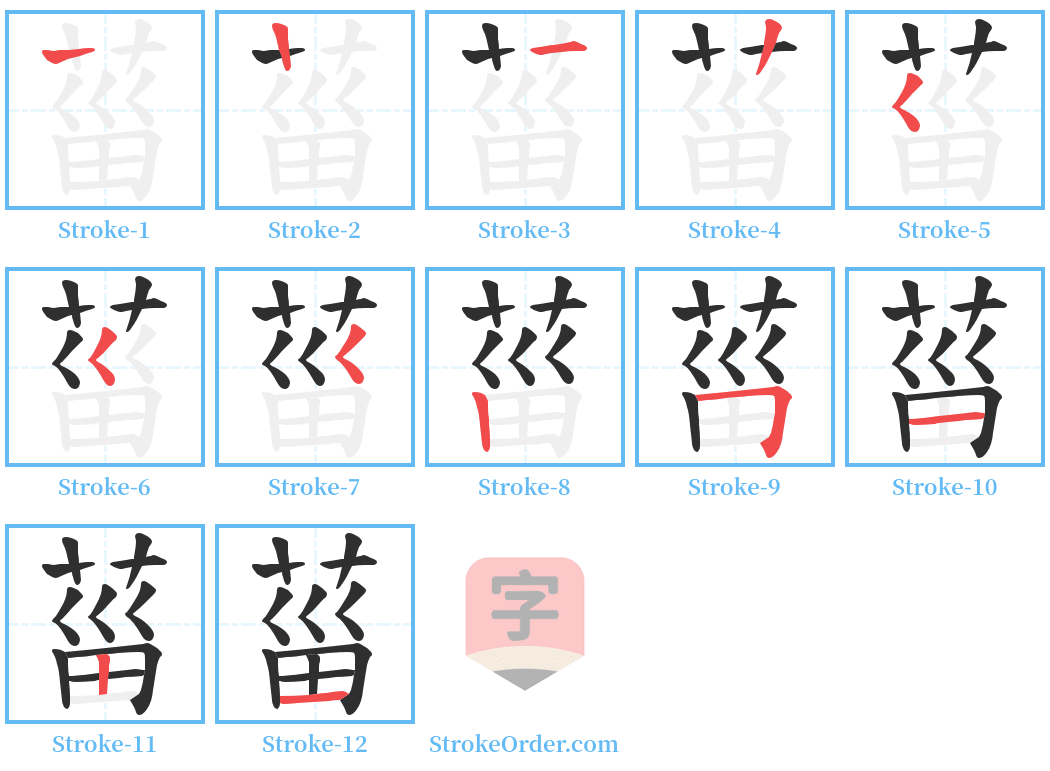菑 Stroke Order
Animated Stroke Order of 菑

Stroke Order Diagrams for 菑

Information of 菑
Pinyin
zī、 zì、 zāi
Radical
艹
Strokes
11 strokes
Usage
★★
Definition
菑 (zī)
[名]
1. **初耕的田地。** // A field that has been under cultivation for one year.
2. **开荒。** // To open up wasteland; reclaim wasteland; plough and weed.
3. **水名。即今山东省淄河。** // Name of a river, referring to the present-day Zihe River in Shandong Province.
4. **姓。** // A surname.
[动]
1. **开垦;耕耘。** // Open up wasteland; reclaim wasteland; plough and weed.
2. **另见 zāi “灾”。** // See also zāi "disaster".
引
1. 《说文》:菑,不耕田也。 按,古文从田,巛声,小篆又加草耳。不耕田者,不耕而才耕之田也。 // "Zī" means not ploughed land. According to the ancient texts, it derives from the characters for field and river, with grass added in small seal script, denoting unharvested farmland.
2. 《易·无妄》:不菑畬。董遇注:“菑,反草也。” // "Wu Wang" states not to plough the land. Cong Yi notes: "Zī" also refers to grass."
3. 《尔雅》:田一岁曰菑,二岁曰新田,三岁曰畬。 // In "Erya," it is stated that land cultivated for one year is called zī, for two years new field, and for three years it is called yú.
4. 明·徐光启《甘薯疏序》:耕获菑畬,时时利赖其用。 // Ming Dynasty scholar Xu Guangqi in "On Sweet Potatoes": Cultivating the land benefits the harvests.
例
- **菑畬 (开垦一年和三年的地); 菑亩(初耕的田地)** // Zī yú (land cultivated for one and three years); Zī mǔ (land that has just been cultivated).
**直立而枯死的树木。**
**Withered trees.**
**树立;插入。**
**To erect; to insert.**
**车辐插入毂中的部分。**
**Part of a wheel spoke inserted into the hub.**
**矮墙。**
**A low wall.**
**剖析。**
**To analyze.**
同“灾”。
**The same as “zāi.”**
名词 灾祸、祸害。通「灾」。
**Noun: disaster, calamity. Synonymous with "disaster".**
《诗经.大雅.生民》:「大拆不副,无菑无害。」
**In "The Book of Songs, Greater Elegance, Shēngmín": "No calamity, no harm."**
《史记.卷三九.晋世家》:「天菑流行,国家代有,救菑恤邻,国之道也。」
**In "Records of the Grand Historian, Volume 39, Jin Family": "Calamities abound; it is the state's duty to aid the neighbors."**